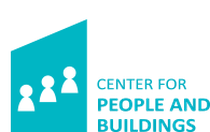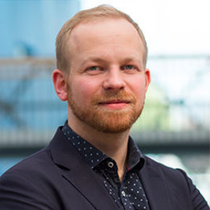The Living Urban Office (LUO) project was performed by a multidisciplinary team of 27 students in the Interactive Environments program at the Delft University of Technology. The students followed an approach combining Research through Design (RtD) with the Living Lab research, which involved iterative research, design and prototyping activities
During the 5-month LUO project, the blurring boundaries between work, social, leisure and private spheres of life were addressed. For instance, mobile technology affords people to flexibly work from wherever they are – be it a corporate office flex-desk, a co-working space, a café, train or their home. In a scenario and city like Amsterdam, where anyone can become such a “work nomad”, many questions arise:
- What value do offices still add to work activities that can also be performed elsewhere?
- How do offices impact the physical, psychological and social well-being of its inhabitants?
- How can offices support these new, dynamic collaborations and add meaning to social life?
- How does knowledge generated by freelancers differ from knowledge generated in traditional organizations, and how can these different types of knowledge be exchanged and aggregated?
- How can the city as a whole act as one knowledge-generating and knowledge-sharing ecosystem in which every citizen can contribute and benefit from?
The student exploration revealed societal, cultural, psychological and technological challenges as well as opportunities that emerge during implementation by these systems in the real-world.
Showtime
The project concluded with an exhibition of five interactive prototypes embedded in the offices of the AMS Institute. A selection of influential speakers from office-related industry and academia debated on future solutions for supporting knowledge generation and sharing within cities during a mini-symposium.
Project members
Partners


